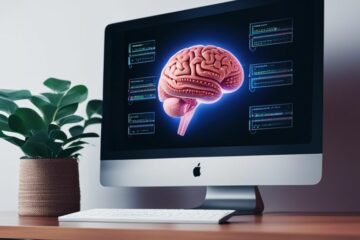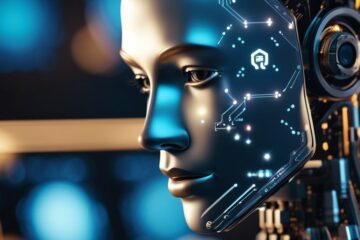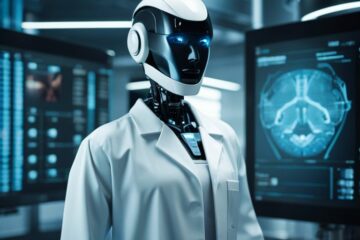Over the years, Artificial Intelligence has made significant strides in revolutionizing various industries, and education is no exception. The incorporation of AI in tutoring is reshaping the traditional learning landscape, offering personalized and adaptive learning experiences to students worldwide. This transformation brings both advantages and challenges, making it crucial to examine into AI in education to understand its implications fully.
Key Takeaways:
- Personalized learning: AI tutoring can provide personalized learning experiences based on students’ individual needs and learning styles.
- Immediate feedback: AI tutors can offer immediate feedback to students, allowing them to correct mistakes and reinforce learning in real-time.
- 24/7 availability: AI tutors are available 24/7, providing students with support and guidance whenever they need it.
- Adaptability: AI tutors can adapt to students’ pace of learning, ensuring that each student receives the appropriate level of challenge and support.
- Data analysis: AI can analyze large amounts of student data to identify patterns, trends, and areas where students may need additional help.
- Cost-effective: AI tutoring can be a cost-effective solution for providing personalized education at scale, potentially reducing the need for additional human resources.
- Enhanced learning experiences: AI tutoring can supplement traditional teaching methods, offering additional resources and support to enhance students’ overall learning experiences.
The Mechanics of AI Tutoring
Understanding Intelligent Tutoring Systems
One of the key components of AI tutoring is the use of Intelligent Tutoring Systems (ITS). These systems are designed to provide personalized learning experiences by adapting to the individual needs of each student. ITS utilize algorithms to analyze student data, such as performance and engagement levels, to provide real-time feedback and guidance. By tracking student progress and understanding their learning patterns, ITS can tailor lessons to suit the student’s pace and learning style.
Adaptive Learning Technologies
Learning with adaptive technologies allows for a more customized and flexible approach to education. These systems use data analytics and machine learning to identify areas where a student may be struggling and provide additional support in those areas. Adaptive learning technologies can adjust the difficulty of the material based on the student’s performance, ensuring that they are consistently challenged but not overwhelmed.
Understanding how adaptive learning technologies work is vital for educators and students alike, as it represents a significant shift in the traditional learning paradigm. By embracing AI tutoring tools, students can benefit from personalized learning experiences that cater to their individual needs, promoting better engagement and retention of knowledge.
The Benefits of AI in Education
Personalized Learning Experiences
On the forefront of the benefits of AI in education is the ability to provide personalized learning experiences. AI tutors can adapt to the individual needs of each student, offering tailored content and pacing to suit their learning style. This personalized approach allows students to progress at their own pace, filling knowledge gaps and advancing in areas where they excel. By analyzing data on each student’s performance, AI can generate insights to help educators understand student progress better.
Enhanced Engagement and Motivation
One significant advantage of utilizing AI in education is the potential for enhanced engagement and motivation among students. AI-powered tools can offer interactive lessons, gamified learning experiences, and real-time feedback that keep students actively involved in their learning process. By making learning more engaging and fun, AI can ignite a sense of curiosity and drive to succeed in students.
One key aspect that enhances engagement and motivation is the ability of AI to adapt to the student’s learning pace and style continually. By providing a customized learning experience, AI ensures that students remain challenged but not overwhelmed, thus fostering a sense of accomplishment and sustained interest in learning.
Immediate Feedback and Assessment
Personalized AI tutoring also facilitates immediate feedback and assessment for students. AI can evaluate student responses instantly, providing detailed insights into their understanding of the material. This real-time feedback allows students to correct mistakes immediately, reinforcing learning and preventing misconceptions from taking root. Additionally, AI can generate automatic assessments, freeing up teachers’ time from grading to focus on individual student support.
Another notable benefit of immediate feedback and assessment is the ability to pinpoint areas where students may be struggling and provide targeted interventions. By identifying learning gaps early on, educators can intervene promptly to provide additional support, ultimately improving student outcomes.
Challenges and Limitations
Notwithstanding the promising potential of Artificial Intelligence (AI) in revolutionizing education through personalized learning experiences and advanced tutoring systems, there are several challenges and limitations that must be addressed to fully realize its benefits.
Ethical Considerations
Considerations about the ethical implications of using AI in education have become increasingly important. Issues such as data privacy, algorithmic bias, and job displacement need to be carefully examined and regulated to ensure that AI is used in a responsible and equitable manner.
Data Privacy and Security
Data security and privacy are paramount concerns when integrating AI into educational settings. Ensuring that student data is protected, anonymized, and used solely for educational purposes is crucial. Regular audits and transparent data practices are crucial to maintain trust and compliance with privacy regulations.
With the proliferation of AI technologies collecting vast amounts of sensitive information, including student performance data, there is a growing need for robust data protection measures to prevent breaches and unauthorized access.
The Digital Divide and Accessibility
For AI tutoring to be truly effective, it must address the digital divide and ensure accessibility for all students, regardless of their socioeconomic background or physical abilities. Providing equitable access to technology and reliable internet connectivity is crucial in leveraging AI to improve educational outcomes.
Plus, bridging the digital divide and enhancing accessibility can lead to empowering marginalized communities with equal learning opportunities and fostering a more inclusive educational environment.
AI Tutoring in Practice
Subject-Specific Applications
Practice in artificial intelligence has shown significant advantages in subject-specific applications within education. AI tutors are revolutionizing the way students learn and interact with various subjects. These AI tutors are programmed with vast amounts of information on specific subjects ranging from mathematics to language learning, allowing them to provide personalized and adaptive learning experiences for students.
Integrating AI Tutors into Traditional Classrooms
With the advancement of AI tutoring technology, integrating AI tutors into traditional classrooms has become a viable option for educators. These AI tutors can support teachers by providing additional help to students, offering individualized learning pathways, and freeing up time for teachers to focus on other aspects of teaching. This integration can lead to more efficient and personalized learning experiences for students, ultimately enhancing their academic performance.
Another benefit of integrating AI tutors into traditional classrooms is the ability to provide real-time feedback to both students and teachers. AI tutors can analyze student performance data and provide insights to educators on areas where students may be struggling. This immediate feedback loop enables teachers to address learning gaps promptly and tailor their teaching methods to better meet the needs of their students.
The Role of Teachers in an AI-Driven Education Environment
Complementing AI with Human Interaction
All interactions between teachers and students are imperative for a well-rounded education. While Artificial Intelligence (AI) can provide personalized learning experiences and immediate feedback, it is crucial to remember the irreplaceable value of human interaction. Teachers bring empathy, creativity, and emotional intelligence to the learning process, aspects that AI cannot replicate. Therefore, educators should see AI as a tool to enhance their teaching rather than a replacement.
Professional Development and Teacher Training
One critical aspect of integrating AI into education is ensuring that teachers receive proper training and professional development. Educators need to understand how to effectively use AI tools in the classroom and how to interpret the data provided by these systems. Continuous training is necessary to keep up with the ever-evolving technology landscape in education. Ensuring that teachers are equipped with the skills to navigate AI-driven environments will be crucial in preparing students for the future.
Future Trends and Predictions
Advances in Natural Language Processing
Despite the remarkable progress in artificial intelligence in education, the field continues to witness advancements in various areas. One such area is natural language processing (NLP), a branch of AI that focuses on enabling machines to understand and generate human language. In the context of education, NLP plays a crucial role in enhancing communication between students and AI tutors, making the learning process more personalized and interactive.
The Growth of Virtual and Augmented Reality in Education
Advances in technology have paved the way for the widespread adoption of virtual and augmented reality (VR/AR) in education. These immersive technologies offer students a unique learning experience by allowing them to interact with content in a three-dimensional environment. Studies have shown that incorporating VR/AR in classrooms can improve student engagement, retention, and comprehension of complex concepts.
Language The integration of VR/AR in education is not merely a trend but a transformative development that has the potential to revolutionize the way students learn. By providing a stimulating and engaging learning environment, VR/AR technologies can cater to diverse learning styles and preferences, making education more accessible and effective for all students.
Summing up
Considering all points discussed in this article, it is evident that artificial intelligence in education, particularly AI tutoring, has immense potential to revolutionize the way students learn and teachers instruct. With personalized learning, adaptive assessments, AI text generation, and timely interventions, AI tutors can provide students with tailored support to help them achieve academic success. Additionally, the ability of AI tutors to analyze vast amounts of data and provide valuable insights can assist educators in making informed decisions about their teaching practices.
However, while AI tutoring offers numerous benefits, it is crucial to acknowledge the ethical considerations and limitations associated with its implementation in education. It is vital to strike a balance between leveraging the capabilities of AI technology and preserving the human aspects of teaching and learning. As we navigate the future of artificial intelligence in education, it is imperative to prioritize student privacy, data security, and equitable access to AI tools to ensure that all learners can benefit from these innovative solutions.
FAQ
Q: What is Artificial Intelligence in Education?
A: Artificial Intelligence in Education refers to the use of AI technologies to enhance the learning experience of students, provide personalized tutoring, and automate administrative tasks in educational institutions.
Q: How does AI Tutoring work?
A: AI Tutoring uses algorithms to analyze data from student interactions, identify learning gaps, and provide personalized feedback and recommendations. It can adapt to the individual needs and pace of each student.
Q: What are the benefits of AI Tutoring?
A: AI Tutoring can provide personalized learning experiences, improve student engagement, offer immediate feedback, and free up teachers’ time to focus on more strategic tasks. It can also help identify areas of improvement for students and track their progress.
Q: Will AI replace human teachers in the future?
A: While AI can enhance the teaching and learning process, it is unlikely to fully replace human teachers. Human interaction, empathy, and creativity are necessary aspects of education that AI cannot fully replicate.
Q: How can AI be used for assessment and grading?
A: AI can be used to automate grading for multiple-choice questions, essays, and other assessments. It can provide immediate feedback to students, identify patterns in their responses, and help teachers analyze student performance more efficiently.
Q: Is AI Tutoring suitable for all subjects and grade levels?
A: AI Tutoring can be adapted to various subjects and grade levels, from elementary school to higher education. It is most effective for subjects that require practice, feedback, and personalized learning pathways.
Q: What are the ethical considerations of using AI in education?
A: Ethical considerations in using AI in education include data privacy, bias in algorithms, transparency in decision-making processes, and the need to ensure that AI technologies complement rather than substitute human teachers. It is necessary to address these concerns to ensure that AI is used responsibly and ethically in education.








